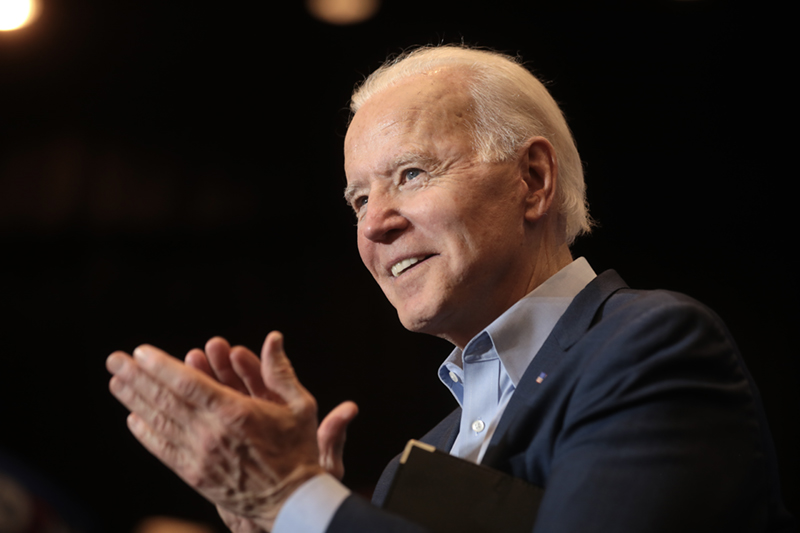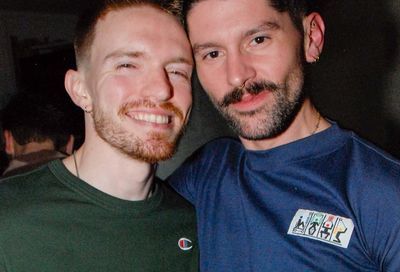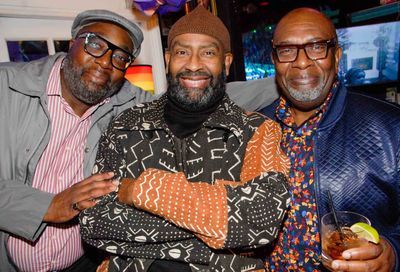Annise Parker: President Trump “is causing people to reassess the need to be [politically] involved.”
Victory Fund's new head says patience is critical in the rocky fight for full equality

A few hours after she was officially named the next president and CEO of Victory Fund and Victory Institute, former Houston mayor Annise Parker has promised to continue in the footsteps of and build on the progress made by her predecessor, Aisha Moodie-Mills.
“We have a well-articulated vision, we just need to execute on it,” says Parker, who will assume duties on Monday, Dec. 11. “Our whole purpose is to increase the number of LGBT candidates for office. And you do that by recruiting, training and supporting candidates. And then, also, once someone’s in office, by supporting incumbents as they work through the process and decide to move up. So we’re going to continue exactly that.”
Parker, 61, is the first head of Victory to have served in elective office. She brings a wealth of knowledge gleaned from several successful campaigns that saw her elected as a Houston city councilmember, city comptroller, and, ultimately, mayor.
“I’ve run 11 political campaigns — I know exactly what it takes,” she says during a break at the Victory Institute’s International LGBTQ Leader’s Conference at the Washington Hilton. “I know what kind of support candidates need, and I also know when to say, ‘You need to step it up, you’re not doing your part.’ And I think that perspective is one of the things the board was looking for.”
Victory’s offices are based in D.C., but Parker will continue to live in Houston, believing that part of her job is to travel the country and engage with LGBTQ candidates.
“I think there’s some perception, because we’re based here in D.C., that we’re really focused on what happens at the federal level. But in truth, the bulk of the organization’s resources are focused on what’s happening at the state and local level. That’s where our candidates are, and that’s where we can make the most progress.”
Parker is amazed at the number of LGBTQ people interested in running for office, evidenced by the fact that Victory Institute’s candidate training programs are oversubscribed. She attributes the increased political engagement to a willful determination to stop progress on a host of issues.
“It’s not just the president,” she says, dismissing the idea that the spike is a response to Trump. “People are seeing in very, very stark terms how elections matter, and how the decades of gains, of progress we have made, can be wiped out in a relatively short period of time. That’s shocking to people.
“And it’s not just in Washington. You have RFRA bills all over the country, you have attacks on the transgender community popping up all over the country, these so-called ‘bathroom bills.’ You have litigation, like Pidgeon v. Parker in Texas, trying to take away benefits. All of these things are happening, and people see that and recognize it for how quickly we can regress. They’re concerned and passionate.”
Still, Parker acknowledges that Trump’s crude, bigoted, and boorish behavior has provided impetus for people to jump into the political fray.
“[T]he tone and tenor of public discourse has changed,” she says, “and I put this squarely at the feet of the president. His willingness to demean and diminish and attack his opponents, to refer to groups of people he doesn’t like with slurs and ugly nicknames, and his willingness to go on the attack and unwillingness to call out those on the Right who fully deserve it, the hate-mongers, is causing people to reassess the need to be involved.”
Parker says the community needs to view the struggle for equality as a long-term journey with many starts and stops.
“You have to have the long view, and you have to have patience,” she says. “You don’t have to fight everything, but the best thing a public official can learn is where the line is that they won’t step beyond, or back up beyond, where they draw that important line, and they’ll go to the mat and fight.”
To illustrate, she offers her own experience being sued by right-wing activists over her decision to extend spousal benefits to Houston city employees who were legally married in other states in 2013, after the U.S. Supreme Court decision finding part of the Defense of Marriage Act unconstitutional. After an appellate court lifted an order blocking the city from offering the benefits following the legalization of marriage equality in 2015, the Texas Supreme Court initially refused to hear the case.
However, the Republican attorney general, lieutenant governor, and governor of Texas, along with other conservatives, applied pressure on the court to reverse itself and agree to hear the case. The Texas Supreme Court justices “rolled over and grabbed their ankles,” says Parker, eventually issuing a decision finding that the city was not required to offer benefits to same-sex couples, despite the legalization of marriage equality.
The city of Houston subsequently appealed to the U.S. Supreme Court, which refused to hear the case, allowing the Texas Supreme Court decision to stand. Parker says she expects the U.S. Supreme Court to eventually resolve the issue, but not until legal wrangling in the Texas courts is finished and all legal remedies have been exhausted.
“The U.S. Supreme Court didn’t do anything on the merits. What they essentially said was it wasn’t baked yet on the state level. But even if [our opponents] do win, it’ll be a pyrrhic victory for them, because the current mayor of Houston has already expressed that he will continue to offer those benefits. Even if the city of Houston loses the case, all it will say is that Houston doesn’t have to offer the benefits. ‘Okay, we don’t have to offer them. We’re going to offer them.'”
Parker expects to see more possible setbacks, particularly if the Republican-led Texas Legislature attempts to force through legislation that would prohibit all cities from extending spousal benefits to their LGBTQ employees. She feels the decision will wind up back in the hands of the U.S. Supreme Court.
“Ultimately it’s going to come down to fairness, and it’s very clear that the U.S. Supreme Court understands that marriage is marriage.”
It’s that long-term view that LGBTQ office-seekers should keep in mind as they deal with occasional setbacks, says Parker, adding that their mere presence in the chambers of government across the country makes a difference.
“I’ve been an activist long enough, and I’ve seen that long arc of progress,” she says. “You may not win today, but you’re going to win tomorrow. This is a war that we have already won. We may lose battles. And anytime the pendulum swings towards justice, it will swing back. But as Martin Luther King said, ‘The moral arc of the universe is long, but it bends towards justice.'”
Support Metro Weekly’s Journalism
These are challenging times for news organizations. And yet it’s crucial we stay active and provide vital resources and information to both our local readers and the world. So won’t you please take a moment and consider supporting Metro Weekly with a membership? For as little as $5 a month, you can help ensure Metro Weekly magazine and MetroWeekly.com remain free, viable resources as we provide the best, most diverse, culturally-resonant LGBTQ coverage in both the D.C. region and around the world. Memberships come with exclusive perks and discounts, your own personal digital delivery of each week’s magazine (and an archive), access to our Member's Lounge when it launches this fall, and exclusive members-only items like Metro Weekly Membership Mugs and Tote Bags! Check out all our membership levels here and please join us today!


























